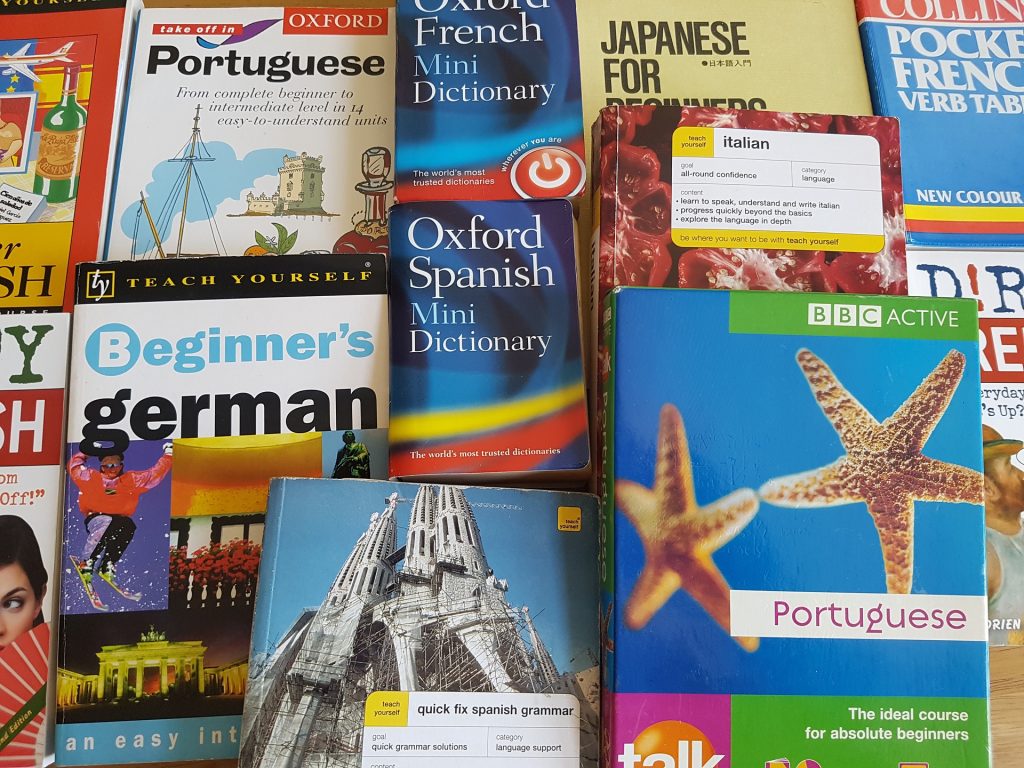I guess it comes with the territory of being an English teacher abroad, but it is always fascinating to me to watch how language develops. The coming of a word into spoken parlance is a beautiful thing to behold.
Ultimately, a shared vocabulary is a sign of shared experience. When this occurs amongst a minority living in a foreign country, it could be defined (and many European politicians would jump to define it thus) as “integration”. This is a little abstract as a concept. Whether “yabangees” are “integrated” or not, depends not only on which yabangees you are referring to, but the messy topic of how you define integration itself. And let’s not even get into the debate of whether one can, or indeed should, integrate with a host culture in the first place.
The fact remains that when an English word will do just fine, foreigners – and by foreigners I mean yabangees, will often use a Turkish word instead. This is not a new concept – indeed it is how every language has been enriched for millennia. Kısmet, for instance. I have heard that word used in Britain and on several American films. That word entered Turkish through Arabic with the advent of Islam, as it carried a somewhat loftier concept of divine fortune in life than other words in existence at that time (Kısmet relates to the word “Taksim” – “portion/division”, i.e. everyone has been allotted a portion of luck). The term then entered English in the time of the British Empire, when classic tales and descriptions of life in the Orient were translated and consumed en masse by a newly-literate population revelling in the ill-founded idea of a static culture beyond time, in a period of mass social upheaval. The untranslated term evoked something more mystical and rooted in belief than what English variations could provide and thus gained in usage.
This process of transmission spanned hundreds of years, and was brought about by various climactic historical events. But compare that to the word “Çapulcu”, which was barely used amongst Turks a couple of months ago but has now catapulted into daily usage in connection with the Gezi Park events and has been widely used by foreigners in and out of Turkey.
“Çapulcu” was historically used as a clear insult to the unruly way of life led by feuding tribes and groups of highway bandits. It was especially used in the early days of the Republic by figures like Celal Bayar and İsmet İnönü to describe the tribes of the East in need of “civilizing” and “reform”. Since being used by the Prime Minister in 2013 to disparage the opposition movement however, the term has become a badge of honour amongst protesters at Gezi.
Recording Yabangeese
With the Gezi events somewhat drawing to a close, the term may fall out of use as quickly as it came. It’s difficult to gauge these things. That said, its popularisation has at least been recorded. For now, I have attempted to record the words which have come into our daily lexicon from Turkish. I have split the words up into groups: places, people, concepts and exposure. The “exposure” section is, in my opinion the most interesting, as it contains the words and expressions which enter completely unconsciously from the host culture. The list is not expansive, but I’m sure it will grow.
Looking at the words in other sections, one can build a picture of the unique concerns of yabangees living in Istanbul. They use a lot of words to-do with housing, owing in part to the different system in Turkey. Also, their generally younger age means that for many, moving to Turkey was the first time they had to deal with people like estate agents and landlords – thus the Turkish terminology resonates with that experience somewhat more than the English equivalent. What can also be gleaned is that for most yabangees, outside work, their daily lives revolve around enjoying the fine weather of Turkey, eating, drinking and sitting in police stations filling out applications.
I have undoubtedly missed some “Turkisms”, which make up the bulk of “Yabangeese”. Also, it goes without saying that most Yabangees know a lot more Turkish than this. Keeping this in mind, you are more than welcome to list any words you think are missing on the comments thread below. But remember that in order for it to be true “Yabangeese”, it has to be commonly used in an English sentence in seamless fashion between non-Turkish speakers, and understood by all. Enjoy!

PEOPLE
Yabangee – “Foreigner”
(i.e.) “Are there many yabangees at the school you work in?”
Note: The unanimous usage of the word Yabangee, to refer to non-Turks, is used instead of the English translation “foreigner” to avoid the kind of confusion which occurred when a Turkish friend once asked me if there were any foreigners working at my school in Izmir. “They are all foreign”, I said. Well, they were to me, after all – there wasn’t a single yabangee there.
Emlak guy – “Estate agent”, “Realtor”
(i.e) “Sucks, I gotta pay the emlak guy too”
Note: This anglomorphism of Emlakçı, or “realtor”, takes the place of the English as, for many, getting a place in Istanbul is their first experiences renting property in a foreign county. It is also a little unique in Turkey too, in that when you begin paying rent on the apartment, you also pay the emlak guy about the equivalent of a month’s rent for all the hard work he did putting the ad up in his office window, and calling the ev sahibi (see below) to tell him you were coming to have a look at the place. You could feel as though you were robbed in clear daylight for this, but on the other hand, they are very cheerful people and nice to talk to. I wonder why…
Ev sahibi – “House owner”
(i.e.) “My ev sahibi complained about the noise”
Müdür – “Manager/Director”
(i.e) “The müdür is this guy called Nesrettin”
Note: A bad müdür can make your life hell with meetings, extra work, a bad attitude, meetings, illogical time-consuming orders and meetings. Did I mention meetings? The word replaces the English equivalent for practical and emotive reasons. Practically speaking, müdür is used in place of a multitude of English synonyms like director, manager, chair, head of department, boss etc. which all have their nuanced differences. On top of this, unlike a director, manager, chair, head of department or boss, a müdür usually has a button on their desk which, when pressed, sends a man with tea to the room.
Çöp guy – “Trash guy” “Garbage man” “Bin man”
(i.e) “Has the çöp guy already came?”
Eskici – “Second hand goods dealer” “Scrap guy”
(i.e.) “The eskici had a sweet gramophone today”
Note: The eskici walks around the city, taking a certain route each day pushing a wooden cart in front of him free for people to throw out their re-usable wears. Regarding the usage of the Turkish without the addition of “guy” – well it is difficult to give a man any other title when he spends the entire day shouting “eskici!” at the top of his voice.
THINGS
Teras – “Terrace” “Rooftop”
(i.e) “Does this place have a teras to smoke on?”
AVM – “Shopping centre” “Mall”
(i.e.) “They’re opening a new AVM on my street soon”
Note: The Turkish stands for Alışveriş Merkezi, Shopping Centre. These are built so frequently, not to mention lavishly, in Turkish cities that they are something apart from a humble mall.
Sahil – “Coast”
(i.e.) “Let’s go chill on the sahil”
Note: The Turkish is used here to make a distinction between the beach and the more general coast of the city, which could just refer to an area. The “sahil” is a grassy area where you can sit with friends and drink tea, admiring the nice view of the calm sea around Turkey’s coastal cities and towns.
Emniyet – “Police station”
(i.e.) “The emniyet told me I had to come back on with a colour photocopy of every document”
Bakkal – “Corner shop” “Convenience store”
(i.e.) “We need eggs. Is there a bakkal around here?”
CONCEPTS
Maaş – “Wage” “Salary”
(i.e) “When do you get your maaş?”
İkamet – “Residence Permit” (diminutive of İkâmet Tezgerisi)
(i.e.) “My ikamet has only got a week left”
Note: The “İkamet” is the key document you must apply for to continue residence in Turkey, buy a house, open a bank account, prove your identity to police and many more. It is essential, and as such, can be the most tediously annoying thing to obtain from the foreigners’ police who, in order to buy time, implore you to run around the city getting stamps, letters, permits and photocopies for your application with a kind of sadistic relish.
Yasak – “Forbidden” “Illegal”
(i.e) “They made white bread yasak, dude”
Dolmuş – “Bus” “Minibus”
(i.e.) “I have to get a dolmuş to work”
Note: Dolmuş literally means ‘full up’, or ‘stuffed’, and it’s at that point when the bus is stuffed that it is deemed to take off on its route. If the driver still thinks there are any vestiges of room left somewhere he will drive at 5 mph to catch any stragglers.
Zam – “Price hike” “Raise”
(i.e.) “They put zam on cigarettes again”
Note: Zam specifically refers to price hikes put on luxuries like alcohol, cigarettes and, somehow, technology imported from abroad.
Ellilik – “A fifty (ml.)”
(i.e.) “Shall we just get an ellilik and call it a night?”
Note: Turkey works with the metric system, so no pints or tipples – you order a drink by the millilitre.
Tavla – “Backgammon”
(i.e.) “I kicked her ass at tavla the other day”
Klima – “Air conditioning”
(i.e.) “Open the klima”
EXPOSURE
Open/Close – “Turn on/off”
(i.e.) “Can you open the light, I can’t see properly”
Note: This is a direct Turkish translation, but seems to catch on. Works for all electrical appliances. For many students learning English ‘Turn it off’/’Turn it on’ appears clunky and incomprehensible – especially at an intermediate level, so many teachers end up caving and using the Turkish equivalent. Hence, most yabangees have developed a habit for opening and closing lights.
Yani – “Like” “Y’know” “Well” “I mean”
(i.e.) “Yani, I don’t know – what do we do?”
Uff – “Oh, God”
(i.e.) “Uff, I don’t want to go to work tomorrow”
Note: Probably the catchiest Turkish expression of annoyance. An additional “ya” is optional for emphasis.











I’d add allahalla- roughly meaning wtf, dude? and tekel man, as in “my tekel man now delivers after ten. It’s awesome.”
I think also speaking for myself, as very, very few people I know are that young or dealing with landlords for the first time, appropriation of words like Emlak and kapıcı, etc., stems from the fact that we just don’t have exact equivalents. And emlak is no more a realtor than a köfte is a meatball, or afiyet olsen means bon apetit. Close, but just too different.
yani can also mean ‘obviously’, ‘therefore’ and ‘so’ – I love this word!